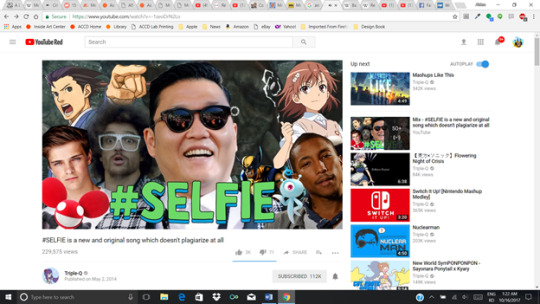#randy's expression is KILLING ME LMFAO
Explore tagged Tumblr posts
Text
"this time i did not argue"

HE MISSES HIM, HE MISSES HIM REALLY.
(if you look close enough you can see monk smiling like his crush just asked him out & randy wondering why the fuck his boss is glad to see monk, what happened to bros before... sweet, fragile mr. monk, huh captain, huh??)
#monk 2002#adrian monk#leland stottlemeyer#stottlemonk#stottlemeyer x monk#monk tv: s01e04#mr. monk meets dale the whale#randy's expression is KILLING ME LMFAO#captain stottlemeyer obviously has a weak spot. that weak spot is monk#my gosh imagine how the precinct probably knows and theyre like “captain's stumped? he's so gonna call in monk”#they make BETS on how long the captain will hold out before calling on monk#leland you're devotion is showing#looking nowhere else but at mr. monk#pls when he said “i did not argue” he sounded so sweet and happy to see monk come along anyway#i am not well
23 notes
·
View notes
Text
The Advent of Remixes and the Shade of Triple Q
__________
If you were to ask me, the remix is more a part of the millennial culture than an archetypal motif of postmodernism; even if the definition of a remix lends itself to postmodernism well.
If you were to ask Kirby Ferguson on the matter, he cites remixes appearing as back as the early hip-hop days of the Chic sampling music off the Sugarhill Gang in the late seventies. And if you watched his documentary “Everything is a Remix”, Ferguson argues that all ideas are derivative off the success of others—which is pretty much postmodernist ideas in a nutshell.
After all, Isaac Newton famously wrote in a letter to Robert Hooke, “If I have seen further, it is by standing on the shoulders of giants."
What is a remix?
To remix something is to simply mix it again, a definition that seems blatantly unhelpful in elucidating the concept of a remix.
But like that definition implies, you take copy an original concept, you alter it in transformative manner, and you combine the two together into something new.
To simplify, you copy, transform, and combine.
Led Zeppelin’s song, “Stairway to Heaven” is an early example of a remix: Zeppelin took part of the melody of Randy Wolfe’s “Taurus,” used it as the opening of a new song, and earned a reputation that skyrocketed his band to fame.
One might ask what’s transformative about gluing on someone else’s riff onto their song; they’re not wrong in asking this. “Stairway to Heaven” is only one of many notable (and recent) instances of music copyright reaching the ears of judicial court.
The jury adjourned to let Zeppelin’s song sing free in a court case akin to a soap opera, but copyright cases are not always black and white. In 2013, Robin Thicke and Pharrell Williams payed 5.3 million to Marvin Gaye for the use of his bass line in “Got to Give It Up”, and Funkadelic sued hip-hop group NWA for a single guitar riff. Even the first rock-themed copyright case, The Beach Boys v. Chuck Berry, ended with a strange compromise that allowed the Beach Boys to continue playing without Berry’s credit, but Berry’s company earned publishing rights.
The remix became the crux of the copyright debate as we approached the digital era, an era that once celebrated innocuous cat videos and inside jokes about hamburgers and green frogs (the ones who didn’t cause riots on the Internet). As Lawrence Lessig alluded to in his TED talk about user generated content ( http://www.ted.com/talks/larry_lessig_says_the_law_is_strangling _creativity?lang uage=en), people on the Internet have unique ways of expressing their creativity that don’t lend itself to traditional copyright law. And like the farmers who tried to sue airplanes from flying over their land only to fail miserably, the way modern times explore content should be reflected accordingly in its laws.
What’s a remix today?
The remix in modern times evolved to encapsulate many forms of media—especially in the digital era.
If I wanted to discuss the modern remix in context of online video, I can cite the many anime music videos (AMVs) that inundated the early 2000s.
I can discuss the recent landmark case of Matt Hosseinzedah and H3H3 that massively benefited the content creators who used the videos of others in a transformative manner. I can write about a similar precedent where YouTuber Ray William Johnson lost to Junkin Media in court for the “misappropriation” of the company’s content and the struggles of a website that chooses to stay neutral in all copyright disputes.
Perhaps I can talk about the many movies in the last two decades that lovingly homage themselves to previous films and genres. One that comes to mind is Quentin Tarentino’s Kill Bill, a great movie that heavily borrows from blaxploitation film, spaghetti films and Bruce Lee movies.
I can even recount the stories of Jane Eyre but with Zombies and Abraham Lincoln: Vampire Hunter, books that take inspiration from historic precedent and reimagine them completely in the form of a gimmick. These books fall under copyright law as derivative work.
Let’s not forget that Fifty Shades of Gray was (and still is in my opinion) just Twilight fan-fiction set in a modern era—mixed in with torture smut. The author of Twilight did sue author E.L. James for infringement, a case dropped only after the alteration of a couple names of characters, and remains a dubious nonexample of copyright theft.
Instead, I wanted to discuss how remixes have musically flourished in the world of SoundCloud, Spotify and YouTube. I want to celebrate a place where creators embrace the derivative nature of their content, a place that gives them a chance to shape their own identity and content through an audience that stretches as far as the bandwidth of a computer.
More specifically, I wanted to look at the “mash-up artist”, creators who take two or more existing songs and combines them for the sake of a new musical aesthetic. In the case of the last couple years, the rise of YouTube channels like SilvaGunner took inspiration from the phenomenon of “Rick-Rolling” to create mash-ups of music for the sake of satire and innocuous trolling.
The content creator I’ll be discussing embraces both aspects of the art form to great success. He’s best known for frequently mashing up the songs and lyrics of Korean pop star PSY with different genres of music, amassing over 36 million views and 112,000 subscribers on YouTube. Though these numbers pale in comparison to that of more popular, trending channels online, Triple Q’s prolific online presence beyond YouTube speaks volumes to the success found in even niche aspects of music.
The video I’ll be looking at.
https://www.youtube.com/watch?v=-1zeoDrN2Lo
#SELFIE is a new and original song which doesn't plagiarize at all
Uploaded on May 2nd, 2014, “#SELFIE is a new and original song which doesn't plagiarize at all” doesn’t hide the fact that the video pokes fun at the Chainsmokers highly derivative single “#Selfie”, a song that pokes fun at the vapid narcissism of selfie culture. However, ironically intentional or not, the song also borrows heavily from Sir Mix-a-lot’s “Baby Got Back,” utilizes a music composition similar to songs like “Valley Girl” and LMAFO’s “Party Rock Anthem”, and tries to copy the viral nature of “Harlem Shake” with its bass line. As one YouTuber, Irvan Issacs, commented on the original video from the DJ duo, the song is “90% taking, 10% song,” and music critic, Miles Raymer, of the Chicago Tribune, slammed the song as “garbage, paint-by-numbers, EDM only there to deliver the meme.” Nevertheless, the song earned 550 million views and was a success for the Chainsmokers.
The title of Triple Q’s mashup of the song uses sarcasm underscored by its blatant lack of capitalization. Though not an ironclad rule on the Internet, content creators often forego proper title punctuation with long run-on sentences in order to preface a joke or meme; this is the case with this video.
The second thing to note after the title is the image used for the video: a portrait of PSY centered above a #SELFIE logo, accompanied by fictional video game attorney Phoenix Wright, record producer Bauer, Redfoo of LMFAO, Deadmau5. Wolverine, Mikoto Misaka of A Certain Scientific Railgun, a wisp from the Sonic the Hedgehog series, and Pharrell Williams—all overlaid with what looks like Dark Souls boss Demon of Song (pics below).


(the overlaid image)
It’s noted that this 3 minute 47 second song samples from 14 tracks, all cited in the video’s description:
"Pursuit ~ Cornered" - Masakazu Sugimori - Phoenix Wright: Ace Attorney
"I Wanna Take You For a Ride" - Tetsuya Shibata - Marvel vs. Capcom 2: New Age of Heroes
"Harlem Shake" - Baauer
"#SELFIE" - The Chainsmokers
"Gentleman" - PSY - Psy 6 (Six Rules),
Part 2 "Party Rock Anthem" - LMFAO feat. Lauren Bennett & GoonRock - Sorry For Party Rocking
"Animals" - Martin Garrix
"only my railgun" - fripSide - To Aru Kagaku no Railgun
"Move For Me" - Kaskade & deadmau5 – Strobelite Seduction
"sister's noise" - fripside - To Aru Kagaku no Railgun S
"Happy" - Pharrell Williams - G I R L
"Planet Wisp: Act 1" - Kenichi Tokoi - Sonic Generations
"Gangnam Style" - PSY - Psy 6 (Six Rules), Part 1
Dark Souls death sound
It’s clear from these elements that the song is remix. It copies the original song, “#SELFIE”, transforms the song by extracting its bass and melody (or whatever melody it had), and combines it with 14 different songs and a death sound into a song. It’s also just catchy.
In fact, it’s a variation of a remix known as a megamix, a medley remix containing multiple songs in rapid succession.
The composition of this megamix follows the same order of the song list in its video description. It starts off with a combination of “Pursuit~ Cornered” and “I Wanna Take You For a Ride" and ends with the Dark Souls death sound. However, what’s consistent throughout the song is the use of the bass tracks of Harlem Shake, #SELFIE and “Party Rock Anthem”, all bass tracks that are near indistinguishable from one another. This choice of composition is not only a way to harmonize very different genres of music, but it also demonstrates how derivative and musically bland #SELFIE is as a song.
Whether effective or even intentional, “#SELFIE is a new and original song which doesn't plagiarize at all” interestingly uses a copyright tactic popularized by fellow YouTuber, Jim Sterling. Though mashups of this nature are often beleaguered by automated copyright claims from media conglomerates looking to cash in on video revenue, “#SELFIE is a new and original song which doesn't plagiarize at all” has enough copyrighted material to be claimed by more than one company. In the worst-case scenario that this song is protected by copyright despite being transformative under fair use, multiple companies cannot take further action without personal negotiation—negotiation often foregone to save time and effort among all parties. Regardless, Triple Q is well-known for challenging copyright through blatant defiance regardless of the consequence.
Conclusion
Now more than ever, the remix is a symbol of post-modernist ideals that shaped the way people look at entertainment and culture. And with the proliferation of the Internet and meme culture, Space-Jam mashups and anime shitposts will probably still persist somewhere.
And as a genre of music, mashups have introduced me a much wider range of music that I would never listen to without the work of artists like Triple Q and Botanic Sage; the two of them shaped my taste in music for better or worse.
0 notes